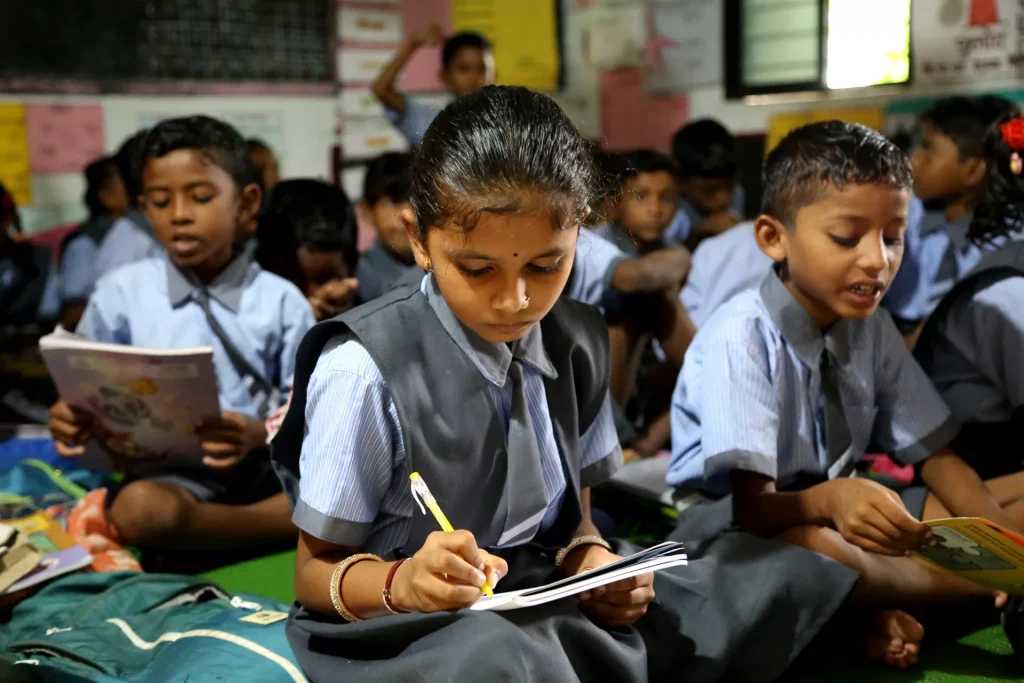
Last week, the UK Government released new data with the startling reveal of a 51% cut next year to the FCDO’s Girls’ Education Department, the department which manages most of the education funding that reaches vulnerable children overseas.
On first look, this cut seems immense and appears to confirm earlier statements made by the Minister of State for Development, Baroness Chapman, to the International Development Committee that education will be deprioritised as Official Development Assistance (ODA) is reduced from 0.5% to 0.3% of gross national income (GNI) by 2027. You may have seen major news outlets reporting that education, gender and equity have suffered among the most dramatic reductions, just behind health.
However, these numbers on education are a bit misleading. The most impactful decisions on education spending are yet to be made, and there remains time to push back before the FCDO’s final calls on budgets for the next three years are announced in the autumn.
What do these numbers actually show?
The data released in the FCDO’s Annual Report and Accounts for 2024-25 reviews the FCDO’s spending over the last year and sets out planned spending for the year ahead. This report shows that this last year, the Girls’ Education Department spent approximately £378 million. In 2025-2026, that figure is set to drop by half to £185 million.
This data captures an irregular year. In 2024, the FCDO delivered a massive portion of its commitment to the Global Partnership for Education (GPE), paying approximately 70% of the amount it had pledged for the 2021-2025 period in a single year. The payment inflated the Girls’ Education Department’s budget to be far higher than it has been over the past several years, which has ranged between £75 million and £133 million since 2021.
This means that funding for education next year is actually higher than it has been recently, and is a welcome sign that the UK is planning to fulfil its existing multilateral commitments to education before the heaviest cuts come into effect over the next few years.
While this is positive, these numbers must be seen in the context of a decade of declining UK spending on global education. The UK has long been seen as a prominent champion of education on the global stage, but this reputation has been tarnished in recent years as funding support has dropped to new lows.
Not as bad as it looks, but still damaging
An Equality Impact Assessment of the FCDO’s annual report shows that this is still ultimately a loss of funding for education. Several bilateral education programmes are being cut, which the Government has acknowledged will hurt children, including the most vulnerable, such as children with disabilities.
Education spending will decline in Ethiopia, Sierra Leone, Nigeria, and Zimbabwe. In the Democratic Republic of Congo (DRC), a girls’ education programme is set to close early this year, threatening the education of around 170,000 children in Kasai, one of the poorest and most conflict-affected provinces in the DRC.
These countries at risk of cuts already face critical education challenges:
- In Ethiopia, approximately 9 million children are out of school owing to conflict, natural disasters, and displacement. Over 10,000 schools, representing 18% of the total, have been damaged by conflict and climate shocks, reducing the availability of safe, functional learning spaces.
- In Sierra Leone, only 4.2% of children can read a simple text by age 10.
- Nigeria is home to one in every five out-of-school children worldwide.
- In Zimbabwe, only one in ten children with disabilities is enrolled in school and broader challenges like economic instability and under-resourced schools limit access to quality education.
- In DRC’s Kasai region, only 58% of children attend primary school. For secondary education, just 11 girls are enrolled for every 100 boys, and 54% of girls are married before age 18, severely limiting girls’ access to education.
The worst cuts are still to come
This year, the FCDO is seeing a 6% cut in ODA. A further 40% will be slashed over the next few years as the UK takes a phased approach to reducing funding to 0.3% of GNI.
We will find out some time this autumn where these cuts will fall, with education expected to be among the hardest hit areas of investment, as it has not been identified as a priority in the way that other key areas like health and climate have been.
Looking ahead to 2026, two key global education funds, the Global Partnership for Education (GPE) and Education Cannot Wait (ECW), will need fresh financial commitments to continue reaching children living in poverty, conflict zones, and crisis-affected areas. If the UK wants to maintain its leadership role in global education, it will need to make strong pledges to these multilateral organisations, which it helped set up and has long supported. Their work is crucial in providing stability and hope where it is needed most and in boosting the foundational skills, literacy, numeracy, and socio-emotional development for millions of marginalised children worldwide.
These cuts come at a critical moment. With 272 million children out-of-school globally and global education aid projected to fall by a quarter between 2023 and 2027, rolling back investments undermines the goal of inclusive, equitable, quality education for all by 2030. The cost of stepping back now will be measured in lost futures.
There has never been a more important time to act
Our continued advocacy for education remains critical. There is still time to make sure the Government understands how important its support for education is and shift their thinking about how to allocate resources in the coming years.
We must keep up the pressure on the UK Government to prioritise education in order to protect the progress gained over the years, and build resilient, hopeful societies where every child has the chance to thrive and fulfill their potential. Please consider taking our latest campaign action calling for the protection of global education funding!